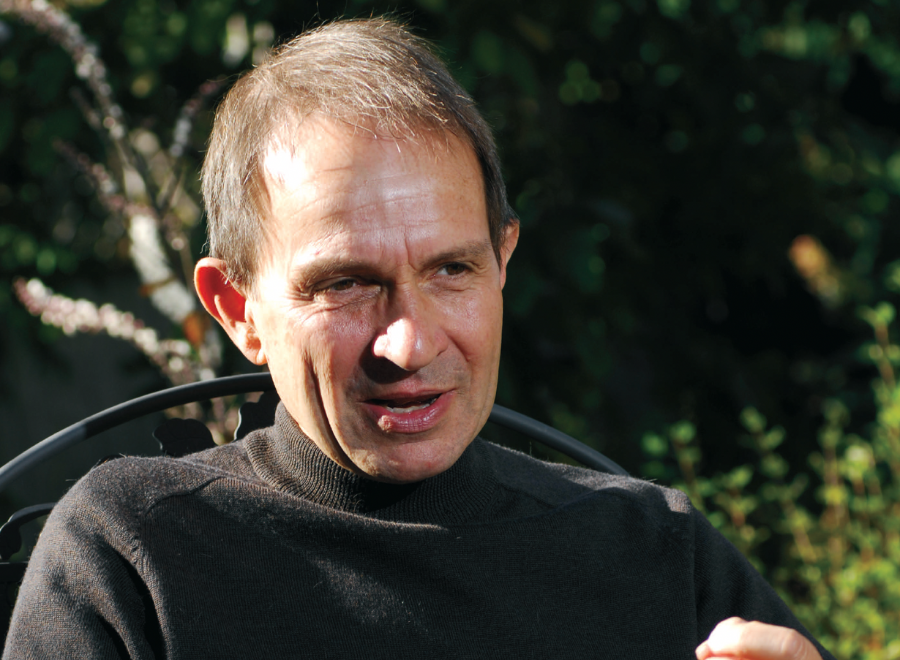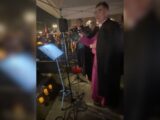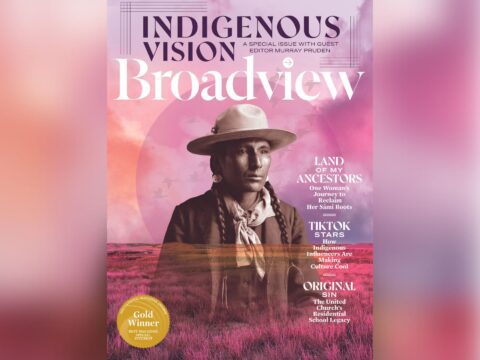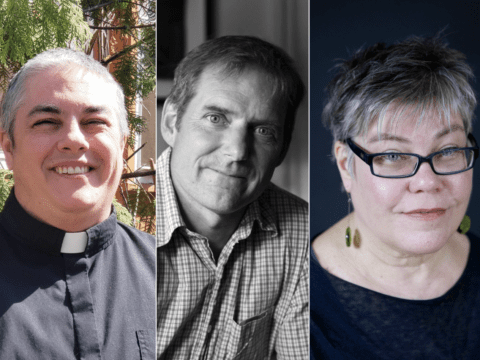Toronto writer Allan Stratton, who wrote the play Nurse Jane Goes to Hawaii and the novel Chanda’s Wars, talks to Mike Milne about how his United Church upbringing informed his work.
MIKE MILNE: Did you learn anything in your United Church upbringing that helped prepare you for life as a playwright and author?
You may unsubscribe from any of our newsletters at any time.
ALLAN STRATTON: I remember being in a Christmas pageant. I was a shepherd in a housecoat with a towel around my head and feeling very important because I was going up to see Jesus, who was a light bulb. In high school, I taught Sunday school, but I think that was because I wanted to get out of hearing sermons. The church taught me not to judge others and to imagine myself in someone else’s shoes. Those are things that have followed me in my writing career.
MM: is there a moral thematic framework that supports your work?
AS: I start from character and situation. I use my theatre training to ask: What do my characters want? What would they do to get what they want? As I become my characters, all my life experiences, good and ill, come to the fore. Themes grow out of that, out of the nature of the relationships, but they are not imposed from above.
MM: Your plays range from farce to historical drama and horror. Is there a connecting thread?
AS: I think loneliness is a real theme through a lot of the plays and fiction. Vivian, for instance, in Nurse Jane Goes to Hawaii, is alone and creates fictional romances because she’s never had romance in her own life. That’s carried on in the more realistic drama Papers, in which you have these two lonely people, a writer and an academic, who forge a relationship. There’s the loneliness Chanda faces in Chanda’s Secrets when she is unable to confront the fact that her mama may have HIV/AIDS. There’s the loneliness of Auntie Lizbet in Chanda’s Wars, who in the end finds a connection with the little girl.
Identity — who are we in the end — that’s another theme. How do people forge their own lives and break free of the circumstances that are holding them back? How do they get the courage to be open and face life with truth?
MM: In Nurse Jane Goes to Hawaii, which has had hundreds of productions, an advice columnist is being interviewed by The United Church Observer. Where did that come from?
AS: In fact, the opening line of the play is “United Church Observer?” The advice columnist is on the phone, trying to beg off an interview. It was 1980, and The Observer was well known. I just thought it would be a fun kind of magazine to have interviewing this advice columnist. That used to get the show off to a laugh every night, because it always connected with people in the audience.
MM: After 15 years as a successful playwright, you decided in the early 1990s to teach drama in a high school for the performing arts. What led you there?
AS: I rather crazily thought I would have the ability to teach, which I enjoy, and write at the same time. I became head of drama at that school. I realized that the amount of energy that is required is absolutely exhausting. And there really wasn’t time to write in any substantive way while I taught. So I left teaching and went back to writing.
MM: At that point, you turned to fiction. Why novels?
AS: When you are writing a play, you have to be aware that the producing company has to feed the actors. You don’t have to feed fictional characters on a page. If you write a new play today, you’re limited to somewhere between two and five characters. But if you are writing a novel, you have much more scope.
MM: Chandra’s Secrets, a novel about HIV/AIDS in Africa, has won awards and been published around the world. What led to you writing it?
AS: I wanted to put a human face on the HIV/AIDS pandemic. I lived in Manhattan during the height of the pandemic there in the 1980s and had gone to funerals almost every other week. I had been concerned that I might be positive and turned out not to be. So I understood that terror. Still, I needed to go to sub-Saharan Africa to see how the disease affects an entire society and its children.
MM: What are the parallels between North America then and Africa now?
AS: In both cases, you have a third of the affected population infected. In Manhattan, it was a third of the arts and gay population. You had people being fired from their jobs and thrown out of their homes and families because they were infected. There was no treatment so people didn’t want to get tested. You had televangelists saying this was God’s punishment. You find the same kind of thing happening in sub-Saharan Africa. What’s worse in Africa is the generation of orphans, and the infection and implosion of entire civil societies.
MM: Do you think your books catch the essence of sub-Saharan African life?
AS: I met a woman from Nigeria when I was working on Chanda’s Secrets and gave her half the manuscript. After two days, she called me and said, “Allan, you have to tell Chanda to tell her mother to do this ” And I said, “I can’t. She’s fictional. I made her up.” She started to laugh and said it took her back to her village. She thought I had just been transcribing what Chanda had been telling me. That was the most exciting review I’ve ever had.
MM: Is it difficult for an outsider to tell the sub-Saharan HIV/AIDS story?
AS: Shared humanity is the essence of literature. It’s why we can read books and understand characters that are written across centuries and continents. The core of emotional truth is the same across time, space and other divides. That’s why as a gay author I can write straight characters. I don’t think that our specifics need to get in the way of what binds us as humans.
MM: What makes you most proud of your United Church connection?
AS: I think the United Church is open and inclusive, and it has always been on the side of social justice. Those are things that matter a great deal to me. The United Church isn’t afraid to be controversial and doesn’t define the Gospel in terms of dos and don’ts but in the broad thrust of the message of inclusion. That’s what I carry with me from the United Church.
***
This story first appeared in The United Church Observer’s February 2009 issue with the title “‘Shared humanity is the essence of literature.’”













